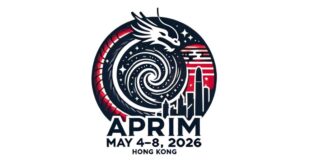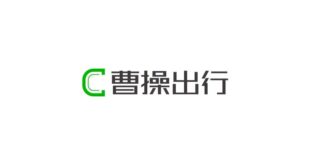HONG KONG SAR – Media OutReach – 3 December
2021 -
On 16 November, the international
independent third-party testing, inspection and certification organization TÜV
Rheinland organized this webinar with the support from Invest Hong Kong, and
German Chamber of Commerce, Hong Kong (GCC) to address the microplastics
challenge along the global textile and garment supply chain.

Among the webinar speakers were:
Rakesh Vazirani, Head of Sustainability
Services, Business Stream Products, TÜV Rheinland together with
Emily Choi, Senior Manager of Consumer
Products, Invest Hong Kong,
Dr. Lei YAO (Gloria), Director of Project
Development, The Hong Kong Research Institute of Textiles and Apparel (HKRITA),
Dr. Frank Lam, Assistant Professor of
Engineering Education, Department of Chemical and Biological Engineering, The
Hong Kong University of Science and Technology (HKUST),
Dr. Cindy Lam, Lecturer, Department of Ocean
Science, The Hong Kong University of Science and Technology (HKUST), and
Gundolf Klaehn, Head of Environmental
Component, Deutsche Gesellschaft für Internationale Zusammenarbeit (GIZ) GmbH.
Mr. Bjoern Lindner, President of the GCC,
stated in the opening speech that the German business community has long placed
significant emphasis on sustainability and protection of our natural world at
its core. One-third of the GCC members come from the supply chain industry, and are happy to see
how all stakeholders work together to address the microplastics issue.
TÜV Rheinland shared background and summaries
on its textiles-microplastics research/initiatives and introduced the concept
of linking data about microplastics shedding at the pre-consumer stage, the
fabric composition/design stage, and what is detected during testing at the
garment/fabric level (as per TMC, AATCC methods).
According to the International Union for
Conservation of Nature (IUCN), 35% of the ocean’s microplastics come from
synthetic textiles. Microplastics shedding at the finished product level can be
correlated with microplastics shedding at the pre-consumer stage in production
processes depending on wet processes, fiber construction depending, fiber
composition, etc. The full related data could perhaps tell a story to designers
and manufacturers that they be able to configure their production processes in
order to eliminate microplastics shedding, so the idea is to combine consumer
stage data with pre-consumer stage data.
Dr. Cindy Lam and Dr. Frank Lam from HKUST
developed the Smart Fish for real-time detection of microplastics in the ocean.
The Smart Fish aims to replace lab-based testing for microplastics, which can
be used in the future for different scenarios, including the textile industry.
Dr. Gloria Yao from HKRITA spoke about an
ongoing project for microplastic fibre separation through sweeping acoustic
waves. It expects the project at industrial scale, to agglomerate the filtered
microplastic to form a cluster in macroscopic scale to provide convenience for
any feasible after-treatment.
Gundolf Klaehn from GIZ introduced the
Promoting Sustainability in the Textile and Garment Industry on Asia (FABRIC)
program, which supports initiatives and innovation fostering the transitional
change of the sector with the focus on reduction of harm to the environment and
improving labour and living conditions.
In his closing remarks, KC Lam, Head of
Consulate and Chamber Engagement, Invest Hong Kong stated: “We have started to
educate the consumer on microplastics. They will soon be demanding better and
higher standards for companies to live up to.”
Microplastics have become a plastic pollutant of oceans on a global
scale. Shaping solutions will include approaches based on detection and
removal, product design and lifecycle thinking, as well as the involvement of
key stakeholders.
TÜV
Rheinland, as a trusted partner providing a suite of assurance services
affecting interactions between people, technology, and the environment, will
facilitate the development and implementation of these solutions.
#TÜVRheinland
Source link
 Odisha Samachar Odisha Breaking News , Odisha Current News , Odisha News
Odisha Samachar Odisha Breaking News , Odisha Current News , Odisha News




